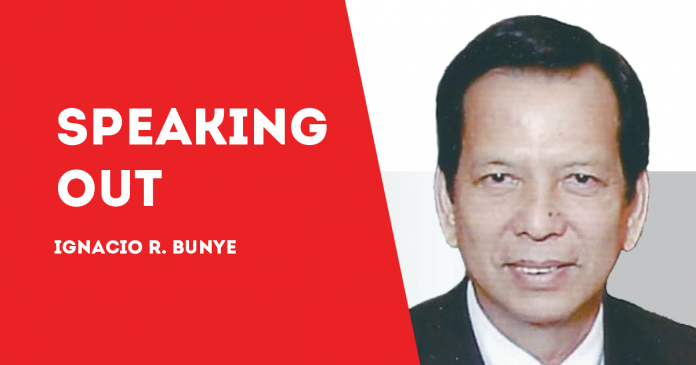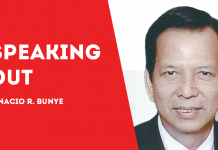
WE WERE saddened during our last board meeting at Bank of Philippine Islands (BPI) when Chairman Jaime Augusto Zobel de Ayala (JAZA) announced the sudden resignation of Xavier P. Loinaz both from the BPI and Ayala boards. Citing health reasons, Loinaz earlier expressed his gratitude for his 40 years as part of management and the board, very kindly calling his time in BPI as “the best years of his life”.
Loinaz took over the presidency of BPI in 1982, which many will recall was a tumultuous period not only for the bank and the industry, but for the country as well. Average interest rates were at 30 percent, “Jobo bills” were going 60 to 70 per cent, foreign capital started to leave in massive numbers and a year later, the peso experienced a 100 percent drop in value in a single day.
JAZA and Fernando Zobel de Ayala, BPI Vice Chairman, jointly stated they cannot thank Loinaz enough as they expressed their appreciation for what Loinaz has done for BPI with his distinctive leadership and caring for the welfare of the bank.
The Ayala brothers described Loinaz in these words:
“In Bank of the Philippine Islands’ long and illustrious history, Xavier Loinaz’s presidency from 1982 to 2004 was marked by groundbreaking innovation, rapid growth, and stability, in the midst of hard-hitting financial crises and turbulent periods in the country. His visionary leadership spurred technology-driven changes and transformative mergers and acquisitions that had tremendous impact not only to BPI, but also to the banking industry and Philippine economy.
“1980 to 1990 were formidable years. The country seemed to move endlessly from one crisis to another. The country’s economic momentum took a plunge not only because of the natural calamities that swept the nation but perhaps even more to the intangible damage to investor confidence brought by political instability resulting from coups and the unsupportive investment policies prevailing in the system.
“The banking industry was not spared from the adverse forces that came to play. The period was marked by a restrictive monetary policy that saw high interest rates and very expensive intermediation costs. There was severe shortage of foreign exchange as the country’s balance of payments and trade deficits rose to record levels as a result of a slack in foreign investments and soft markets abroad.
“With all these adversities, Bank of the Philippine Islands under the leadership of Loinaz led the industry as a shining example for responsible banking. The bank painstakingly set the standard for banking and established a track record of unchallenged leadership in the industry with its reputation, continuous introduction of innovative products and services, pioneering initiatives in technology and development of new areas of growth and investments.
“In addition, from 1989 to 1991, Loinaz led the Bankers Association of the Philippines which comprised universal and commercial banks in the Philippines. During this time, the BAP Credit Bureau was established as well as the BAP Credit Guaranty Corporation “to address the credit needs of small and medium-scale Filipino enterprises.”
Aurelio R. Montinola III, who succeeded Loinaz as BPI President in 2005, said of Loinaz’s work and leadership style: “Xavier saw risks where others didn’t. Yet, he always believed that banking was a risk management business, and, therefore, there was nothing wrong with being conservative. Time would prove him right every time there was a crisis, and we have one every decade.”
Cezar “Bong” P. Consing, current BPI President, paid this tribute. “As CEO of BPI, Xavier Loinaz introduced countless product initiatives in the Philippine banking market, with the introduction of ATMs in the early 1980s being a good example. He also presided over most of the bank’s largest strategic initiatives, which include the acquisitions of Far East Bank, Citytrust, Comtrust and Family Savings Bank. In his 22 years as CEO, his steady and disciplined approach allowed the bank to weather one national or international crisis after another. And while he stepped down as CEO sixteen years ago, his continued role in our board of directors has allowed us to benefit from his experience and counsel. He would have to be one of the most influential figures in the history of modern Philippine banking.”
Former Chief Justice Artemio Panganiban, former BPI Director, described Loinaz up close: “Whenever he spoke during board meetings, everyone listened for surely, no one could afford to miss the wise counsel of a master, a leader and an elder. He spoke firmly but humbly, and always with authority – not only because of his expertise and experience but also because, prior to the meeting, he had studied the specific matter at hand.”
BPI Director Romy P. Bernardo reminisces: “(Here is) another example of this high level of diligence and risk management mind-set that has saved the bank from losses, where others have been blindsided. It is a matter of record at the BSP that in the global financial crisis a decade ago, BPI was the only big local bank that had zero holdings of international subprime securities. A quote from that period from a key board director on a proposal to purchase Lehman securities – “I don’t care if it is triple A rated, if we don’t understand it, we are not buying it.”
As president and CEO of BPI, Loinaz was also a member of the Ayala Group Management Committee, and saw through the conglomerate’s consolidation of its insurance companies, its early investments in electronics manufacturing and information technology, the development of its telecommunications business, and its foray into water.
Loinaz has also been an Independent Director on Ayala’s Board since 2009, and as Lead Independent Director since 2017, during which time Ayala pursued new investments in energy, infrastructure, business process outsourcing, education, and health. As chair of the Audit Committee, Loinaz provided an independent review of Ayala’s financial reporting process, internal controls and risk management system.
To Xavier P. Loinaz, we are praying for your speedy recovery.
***
Note: You may wish to share the foregoing via Facebook, Twitter or Linked-In./PN

